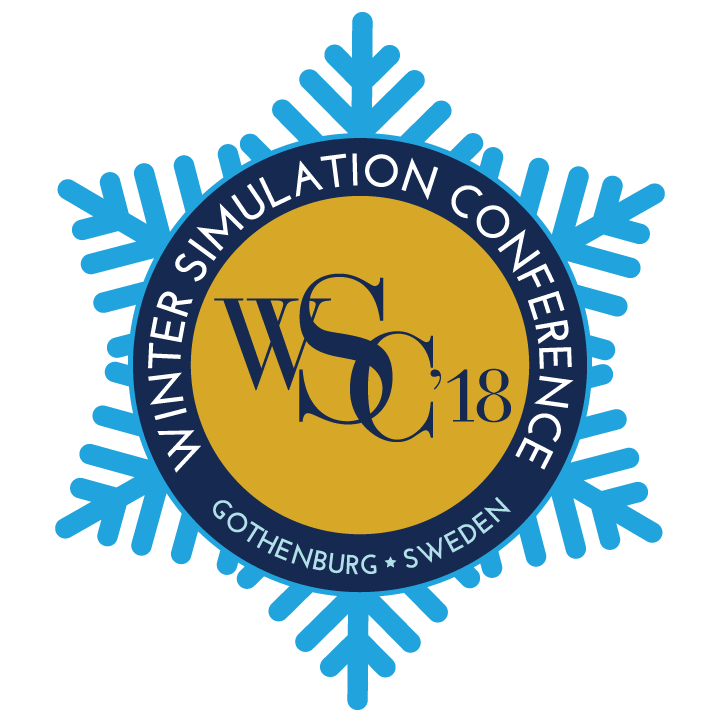[vc_row][vc_column][/vc_column][/vc_row]
Conference Theme: Simulation for a Noble Cause
WSC 2018 focus is on highlighting the use of simulation for noble causes!
Simulation has been found useful for a range of scientific, engineering and business applications as evident by the papers presented at Winter Simulation Conferences over the past 50 years. Simulation has been employed to help noble causes too over the recent past but such efforts have received limited attention. The 2018 conference seeks to highlight applications of simulation for noble causes in addition to continuing to report leading developments and applications in other fields. We especially invite papers describing uses of simulation in efforts analyzing and addressing issues facing humanity including, but not limited to, reducing poverty and world hunger, social causes, social problems, improving natural environment, and disaster response.
WSC 2018 Keynote Speaker
Dr. Jean Baderschneider
CEO and Founding Board Member
Global Fund to End Modern Slavery
The Potential of Simulation for Disrupting Modern Slavery Systems
According to recent global estimates, over 25 million people are in conditions of modern slavery around the world. Modern slavery, an umbrella term which includes forced labor and forced sexual exploitation, is an economic crime of opportunity that occurs in every country in the world, generating an estimated $150 Billion USD in illegal profits to traffickers. It is a massive system of exploitation driven by both supply of vulnerable populations and demand for cheap products and services.
The Global Fund to End Modern Slavery (GFEMS) is a bold public-private partnership with a mission to make modern slavery economically unprofitable by catalyzing and coordinating a global, coherent strategy. Dr. Baderschneider will discuss how developing this coherent strategy will require innovative approaches to collecting data and to evaluating and disrupting systems driving modern slavery. She will highlight the potential of simulation to be a game-changer in this effort.
Titans of Simulation
Russell Cheng
Emeritus Professor, University of Southampton
Peter Frazier
Associate Professor, Cornell University; Staff Data Scientist and Data Science Manager at Uber
Program
WSC 2018 features a comprehensive program ranging from introductory tutorials to state-of-the-art research and practice. Planned tracks are:
- Advanced Tutorials
- Agent-Based Simulation
- Analysis Methodology
- Aviation Modeling and Analysis
- Case Studies
- Complex, Intelligent, Adaptive & Autonomous Systems
- Cyber-Physical Systems
- Environment & Sustainability Applications
- Gaming
- Healthcare Applications
- Homeland Security & Emergency Response
- Hybrid Simulation
- Introductory Tutorials
- Logistics, SCM, Transportation
- Manufacturing Applications
- Military Applications
- Modeling and Analysis of Semiconductor Manufacturing
- Modeling Methodology
- Networks & Communication
- PhD Colloquium
- Poster Sessions
- Project Management & Construction
- Simulation Education
- Simulation for a Noble Cause
- Simulation Optimization
- Simulation Standards and Reproducibility
- Vendor Tutorials
Paper Deadlines and Requirements
All contributed paper submissions will be peer reviewed. Accepted papers will be published in the digital version of the conference proceedings. All papers must be presented for the paper to be fully published, copyrighted and disseminated. Instructions, information, submission forms and procedures are available on the WSC website.
Each accepted paper must have a unique registration and a corresponding presentation at the conference by one of the paper’s authors. Board approval is required if any single registration is attached to more than one paper.
Contributed Paper Deadlines
- April 15, 2018: Electronically submit contributed papers not previously published or presented. Each submission must be use the Word or LaTeX templates on the Authors Kit. The page size in the proceedings is 8.5 by 11 inches (21.6 cm by 27.9 cm). Papers should be at most 12 pages (including an abstract of not more than 150 words), except for introductory tutorials, advanced tutorials, and panel sessions, for which the limit is 15 pages. Submission implies that an author will attend WSC 2018 and present the paper, and all clearance required for publication of the paper will be obtained by July 15, 2018. Use of the authors’ templates in one of the following formats is required: Microsoft Word or LaTeX. Submissions must be made through the WSC website.
- June 1, 2018: Notification of acceptance
- June 30, 2018: Authors electronically submit corrected papers to the Proceedings Editor.
- July 15, 2018: Authors electronically provide a final manuscript meeting all technical and format requirements to the Proceedings Editor.
Poster Session or Ph.D. Colloquium
(One or the other, submission to both Poster Session and the PhD Colloquium is not allowed for 2018)
- August 18, 2018: electronically submit 2-page extended abstracts for presentations in the Poster Session and Ph.D. Student Colloquium. Extended abstracts are used for designing the tracks and are included in the proceedings distributed to conference attendees, but they are not included in the archival version of the proceedings in IEEE and ACM repositories.
- September 14, 2018: Notification of acceptance to authors (including details about submitting slides, and formats of the posters).
- September 21, 2018: Final extended abstracts due.
- October 26, 2018: Slides for the presentation due (see guidelines in the track information)
- December 9, 2018: Bring your poster to WSC 2018. The Poster Madness Session and Ph.D. Colloquium both run on Sunday December 9, so participation in both is not possible.
Case Study Deadlines
- August 18, 2018: electronically submit 2-page extended abstracts for presentations. Extended abstracts are used for designing the tracks and are included in the proceedings distributed to conference attendees, but they are not included in the archival version of the proceedings in IEEE and ACM repositories.
- September 14, 2018: Notification of acceptance to authors (including details about submitting slides, and formats of the posters).
- September 21, 2018: Final extended abstracts due.
WSC 2018 is sponsored by ACM/SIGSIM, ASA (Technical Co-Sponsor), ASIM (Technical Co-Sponsor), IEEE/SMC (Technical Co-Sponsor), IISE, INFORMS-SIM, NIST (Technical Co-Sponsor) and SCS.

